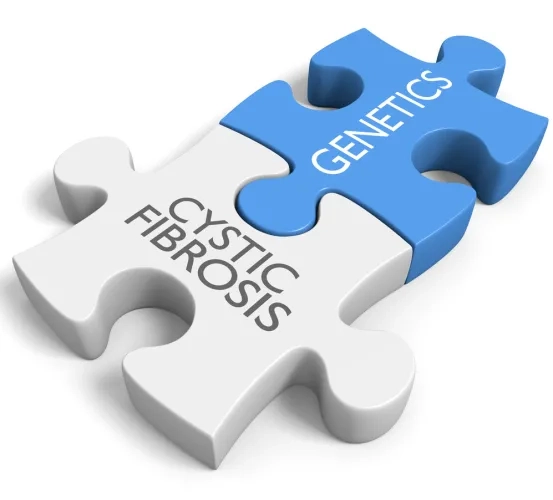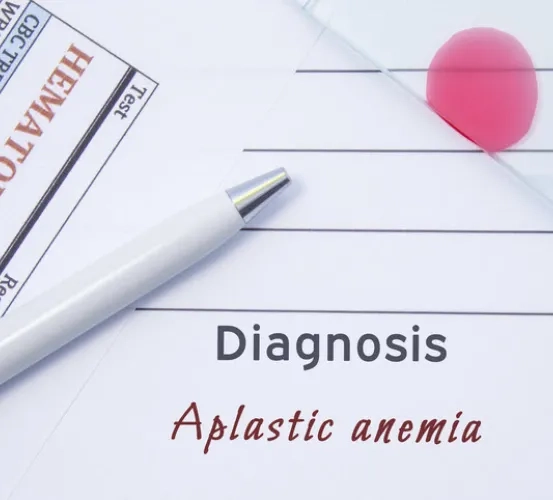
Evaluating the Genetics and Immunology of Periodic Fever, Aphthous Stomatitis, Pharyngitis, and Cervical Adenitis (PFAPA) Syndrome and Other Tonsil Disorders
Do you or your child experience recurring fever with mouth sores (canker sores), sore throat, or swollen neck glands? These could be symptoms of PFAPA, the most common periodic fever syndrome in children.
Dr. Manthiram and her team at the National Institute of Allergy and Infectious Diseases (NIAID) seek volunteers who are one month and older (parental consent required for minors) to participate in a research study to better understand PFAPA. Compensation provided. Participants can join from home anywhere in the USA or internationally.

Role of Genetic Factors in the Development of Lung Disease
Cystic fibrosis (CF) is a progressive, genetic disease that causes persistent lung infections and over time limits the ability of individuals to breathe. Researchers at the National Institutes of Health (NIH) are studying the infection, disease progression, and abnormal genes responsible for cystic fibrosis to better understand the disease process and its effects on breathing.

Treatment of Patients With Cysticercosis With Praziquantel or Albendazole
Are you from Mexico, Central or South America, or India with hydrocephalus, seizures, or an inflammatory condition of the central nervous system without a diagnosis? The National Institutes of Health (NIH) is studying people with cysticercosis and those likely to have cysticercosis. All study related tests and procedures are provided at no cost to you. Travel to and from NIH may be reimbursed.

Low-Dose Danazol for the Treatment of Telomere Related Diseases
Researchers at the National Institutes of Health (NIH) are studying if the medication danazol can be used to treat people with short telomere disease who also have bone marrow failure, liver, or lung disease. In recent studies, danazol, at high doses, showed a positive influence on telomere length. Additional research is needed to learn more about the role of different doses of danazol on telomere disease as well as its effects on secondary diseases.

Eltrombopag for People With Fanconi Anemia
Fanconi anemia is a rare genetic disorder that mostly affects children and often leads to bone marrow failure. Researchers at the National Institutes of Health (NIH) are investigating a new drug to improve blood counts in individuals diagnosed with Fanconi anemia. Eltrombopag is an oral drug that mimics a special protein that causes the body to make more platelets. Currently eltrombopag is used to treat low platelet counts in patients with hepatitis C and chronic immune thrombocytopenic purpura (ITP). Researchers are evaluating if this new drug will improve blood cell counts in individuals diagnosed with Fanconi anemia.

Unrelated Umbilical Cord Blood Transplantation for Severe Aplastic Anemia and Hypo-plastic MDS using CordIn(TM), Umbilical Cord Blood-Derived Ex Vivo Expanded Stem and Progenitor Cells to Expedite Engraftment and Improve Transplant Outcome
Treatment of severe aplastic anemia (SAA) and myelodysplastic syndrome (MDS) usually involves a bone marrow transplant. Researchers at the National Institutes of Health (NIH) are testing ways to make transplant using unrelated donor cells from umbilical cord blood safer and more effective. We hope these procedures will reduce post-transplant complications and improve transplant outcomes.

Impact of Elastin Mediated Vascular Stiffness on End Organs
Researchers at the National Institutes of Health (NIH) seek patients with Williams Syndrome (WS) or Supravalvular Aortic Stenosis (SVAS) to join a research study. Researchers want to see how blood vessel elasticity and stiffness affect the heart, gut, kidneys, and the brain in people with Williams Syndrome.

Surgery as a Treatment for Medically Intractable Epilepsy
The National Institute of Neurological Disorders and Stroke at the National Institutes of Health Clinical Center is looking for individuals with severe epilepsy or individuals who have experienced persistent seizure activity that cannot be controlled with medication, to participate in this research study. The goal of this research study is to provide surgical treatment to control these types of seizures. Participation requires an inpatient stay of up to 4 weeks, plus 3 outpatient visits within 2 years after surgery.

Phenotype/Genotype Correlations in Movement Disorders
Do you have Parkinson's disease? Doctors at the National Institute of Neurological Disorders and Stroke (NINDS) are conducting a research study on people with Movement Disorders. They are currently recruiting participants with Parkinson's disease. The purpose is to learn more about the disease and identify genetic changes and other indicators of the condition that may allow earlier diagnosis.There is no cost for study-related tests or procedures. Travel assistance may be provided.

Join the Fight Against Lyme Disease!
We are looking for people recently diagnosed with Lyme disease to help us answer important questions about the infection. If you have or had the rash associated with acute Lyme disease (erythema migrans), facial palsy, meningitis, heart block, or arthritis; please consider participating in our study.

